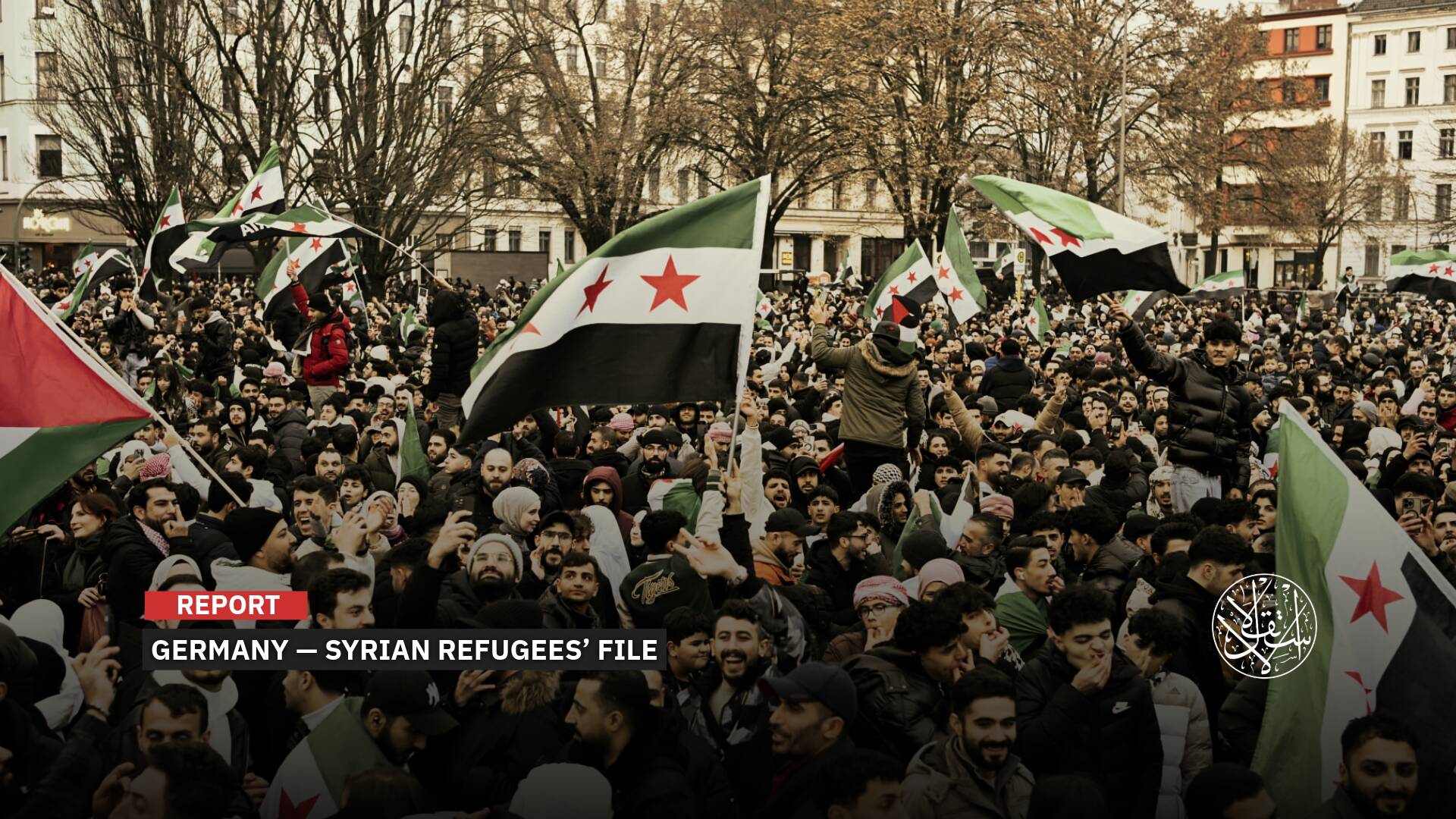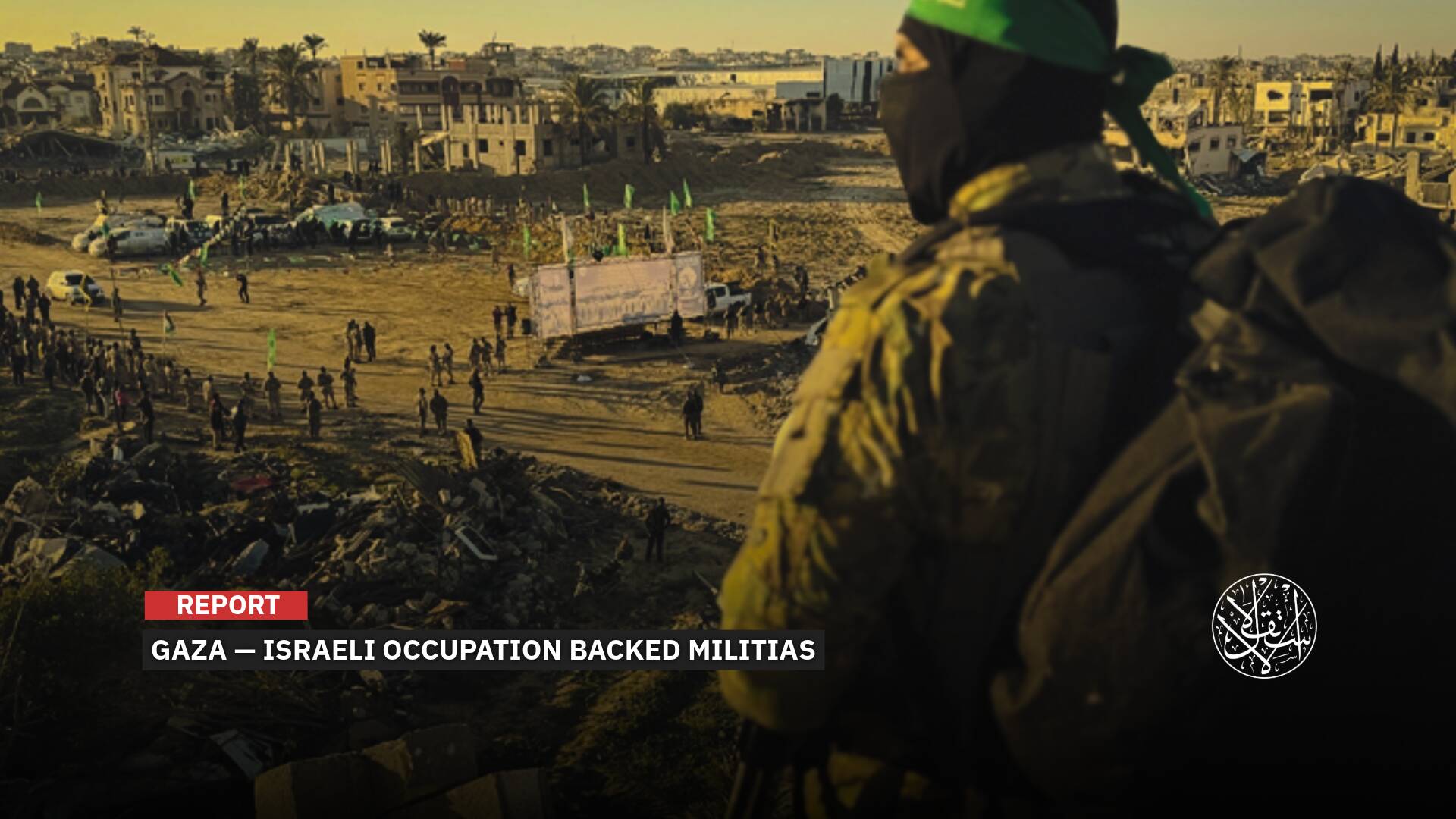Survival Adventures: Why Do the Syrians in Turkiye Plan to Embark on a New Immigration to Europe?
.jpg)
The past months witnessed the flow of thousands of Syrian refugees from Turkiye to the European Union. This wave is the largest since 2015 after European countries took strict measures on their eastern borders and supported Greece in stopping the flow of refugees at the time.
Many Syrian refugees in Turkiye are currently planning to embark on new trouble-filled immigration to Europe after harsh crackdowns and racist speech caused by the electoral propaganda of Turkish political parties calling for the return of refugees and to escape what the government's voluntary return plan might carry, in addition to the high cost of living and high inflation, in addition to other reasons such as feelings of instability and fear of the outcome of the upcoming Turkish presidential elections.
Although the immigration road to Europe is fraught with many difficulties and requires a long period to reach the desired stability, most Syrians wishing to immigrate do not care about these hardships and consider them to be easier than their situation after several years of residence in Turkiye.
A New Syrian Alienation
In conjunction with the campaigns of racist incitement, economic crises, and government measures that Syrians are suffering from in Turkiye, attempts to immigrate illegally to the European continent have increased recently, despite the fact that the countries of Greece and Bulgaria closed their borders to them.
These decisions and steps worried the Syrians in Turkiye and made them feel a kind of insecurity and stability, which prompted thousands to search for alternative solutions, including immigration towards Europe, despite the dangers of the methods they use, such as immigrating on foot or by sea, with the aim of seeking refuge in a European country.
Attempts to immigrate have increased among Syrians who have previously worked or lived in Turkiye, and many Western newspapers have monitored cases of Syrian youth abandoning their jobs in an attempt to immigrate to Europe, which coincides with the escalation of racist speech against Syrian refugees and the tightening of Turkish government measures.
In the same context, a report published by Noon Post on May 18, 2022, explained the reasons that push a large percentage of Syrians in Turkiye to go out on a new immigration road and find a country that provides them with more financial, legal, and social stability.
"The economic situation is considered relatively bad for the majority of Syrians in Turkiye, and this situation has increased in the past two years, especially with the increase in inflation (which was estimated at 61% last April) and the deterioration of the Turkish currency against the dollar, in addition to the low wages of the Syrian worker, and the high prices of house rents in a way that no longer balances with the salaries granted at all," the report added.
The average income of a Syrian worker in Turkiye is estimated at $250 a month, while government reports indicate that a family of four needs about $1,000 a month to live above the poverty line.
"The Syrians in Turkiye have recently been suffering from instability regarding their legal matters regarding temporary protection cards, residency permits, and work permits, as the last stage witnessed a tightening of residency procedures granted to Syrians in particular," the report also indicated.
The report continued by saying: "The loudness of the voices rejecting the Syrian presence in Turkiye in the media and the hate speech that they broadcast on social media represents great pressure on the Syrians, which frightens many about the possibility of attacks on them fueled by the racist issued by some Turkish opposition parties and others."

Despite the Turkish authorities' fight against the racist speech against the refugees, this speech has become strong and takes its place among a good segment, and it has inevitably contributed to increasing the anger and incitement of the Turkish street against the Syrians in recent times.
In addition to the previous reasons, many Syrians do not want to return to Syria as part of any project, especially since Syria has been unsafe for ten years in all its regions, which is what prompts them to leave Turkiye for fear of being forced to return to Syria.
In turn, Tarek al-Younes, a young Syrian man who arrived in the Netherlands a few days ago from Turkiye, said in a statement to Al-Estiklal, "My immigration from Turkiye to Europe lasted about a month. The trip was in several stages, from Izmir, Turkiye, to Athens, Greece, by sea, then to Germany by air, and then to the Netherlands by train. I paid about $10,000, but I do not regret it because I secured my future in a country that guarantees my rights and stability."
As for the reasons that prompted him to immigrate from Turkiye, al-Younes added: "Living conditions in Turkiye have become difficult during the past months, in addition to the recent change in Turkish policy towards Syrians, which encouraged me to make the decision to immigrate to Europe, so as not to find myself forced to return to Syria."
According to a study issued by the Policy and Operations Research Center (OPC), the lack of financial ability to bear the expenses of immigration is the most influential factor preventing a large part of the Syrians in Turkiye from doing so at present.
The study indicated that "the lack of financial resources is a reason that motivates Syrians to immigrate from Turkiye and prevents them at the same time, and if money or less expensive immigration routes are available, the desire may turn into a decision."
More than 78,000 Syrians applied for asylum in the European Union in 2021, an increase of 70% over the previous year, according to European Union records.
It is noteworthy that more than one million Syrians live in Europe as refugees or asylum seekers. For example: in Germany there are 787,000 Syrians, in Sweden there are 114,000 Syrians, and in the Netherlands there are 74,000 Syrians.

Racist Speech
A Washington Post report on August 21, 2022, sheds light on the reality of the Syrians in Turkiye in light of an escalating racist speech against them, which has recently intensified.
Anti-refugee sentiment has escalated in Turkiye in recent years, with a number of Turkish politicians campaigning to impose stricter restrictions on refugees, which contributed to the increase in feelings of hate towards the refugees, especially the Syrians, as they constitute the largest percentage in the country.
The events of the Altindag neighborhood in Ankara on August 12, 2021, in which the property of the Syrians were vandalized and burned, and later the phenomenon of shouting slogans calling for the expulsion of Syrians from the country before the start of matches in sports stadiums, were not the first time that Syrian refugees were attacked by groups of Turks, and it seems that it will not be the last.
However, these growing feelings and reactions do not result overnight but have been nurtured by Turkish political parties for several years, using this as a trump card in order to achieve political gains and win more votes in the upcoming presidential and parliamentary elections until the Syrians turned these disputes into fuel for a political war between the competing parties.
In turn, the Turkish researcher and journalist interested in the situation of Syrian refugees, Jalal Demir, confirmed that the increase in the level of racism by some Turks has led to high levels of anxiety among Syrians, believing that the majority of Syrian refugees in Turkiye aspire to reach Europe.
A recent opinion poll conducted by the research company Metropoll revealed that 81.7% of Turks want Syrians to return to their country.
As for the Turkish parties, at least 84% of the ruling Justice and Development Party voters say that the Syrians should return to their country, while 89% of Republican People's Party voters want to get rid of the refugee crisis once and for all.
Government Actions
At the beginning of 2022, officials in the Turkish government and its ruling party were talking about the return of one million Syrian refugees, according to a plan called voluntary return to the safe zone in northern Syria, which the Syrian refugees on Turkish soil considered an indicator that calls for concern.
This coincided with the tightening of the legal conditions of Syrians in Turkiye, including the failure to grant government permission to travel outside the state in which the refugee resides. In the event of traveling without obtaining a permit, the Syrian refugee will be punished, and this penalty may amount to deportation to northern Syria.
In mid-February, the Turkish Ministry of Interior revealed a mitigation plan targeting the spread of Syrian refugees in several states, which imposes severe restrictions and affects the work and lives of a large number of refugees.
According to a report by the Hurriyet newspaper, which is close to the government, the Turkish Ministry of Interior's decision stipulates that Syrians registered in the country under temporary protection are prevented from restricting their lives in 16 Turkish provinces and 800 neighborhoods in 52 provinces. In the event that the number of Syrians exceeds 25% of the population in a place, the places of residence are closed to receive requests to restrict souls there.
In addition to the reasons that prompted Syrians to immigrate to Europe, the Turkish Directorate of General Civil Registry removed, in mid-May, a large number of exceptional naturalization files for thousands of Syrians after four years had passed since some applications had been submitted.
Some link the removal of exceptional naturalization files with the campaign launched by the Turkish government to appease the street and opposition parties and to withdraw this card before the parliamentary and presidential elections that will take place in mid-2023.
Regarding the latest census of the number of Syrian refugees in Turkiye, Turkish Interior Minister Suleyman Soylu confirmed that the number of Syrian refugees under temporary protection reached about three million and 762,000, in addition to the presence of 120,000 refugees whose cards are still not activated.

From the point of view of researcher Muhammed Elsukkeri, "the main reasons for the rise and increase in Syrian immigration to Europe are the rise in racism in Turkiye, especially with the approach of the elections, perhaps what complicates the matter is the shy measures taken by the Turkish government regarding these incidents, which have increased significantly."
He added in a statement to Al-Estiklal: "However, these reasons are not considered sufficient, as much as Ankara threatens to restore relations with the Syrian regime within the framework of the reconciliation process, which Syrians who are fleeing from the security and military forces of the regime fear."
He continued, "As the Syrian refugees wishing to leave Turkiye believe that the position of European countries on voluntary return and the restoration of relations with the Assad regime is more stringent than Turkiye's, and racism is also lower at certain levels. Therefore, there is basically social security."
As for the measures that must be taken to reduce the immigration crisis of Syrians from Turkiye to Europe, the researcher explained that "the 2016 immigration agreement between Turkiye and the EU regarding allowing the reception of numbers of refugees should be reviewed, as well as Turkiye's support for projects that would reduce the extent of the damage, especially those related to early recovery in northern Syria."
Finally, he noted that "the international community should pressurize not to disrupt the political Path on Syria, which is a central reason. Without solving it, no measure can be considered as fulfilling the sustainable purpose."
Sources
- With nationalism rising, Turkiye turns against refugees it once welcomed
- Syrian refugees in Turkiye and the hardship of fleeing again [Arabic]
- Syrians in Turkiye start a new migration to more stable destinations [Arabic]
- Attitudes Toward Emigration in the Syrian Capital of Damascus: A Survey in Three Neighborhoods
- The Presidency of the Turkish Immigration Service issues new decisions regarding residence permits for foreigners










